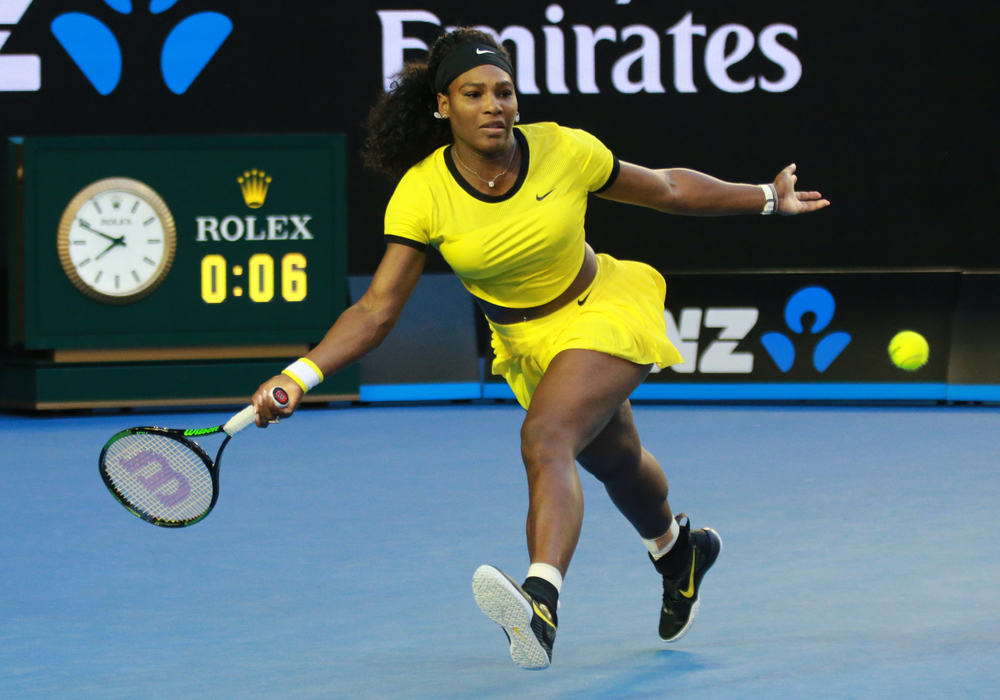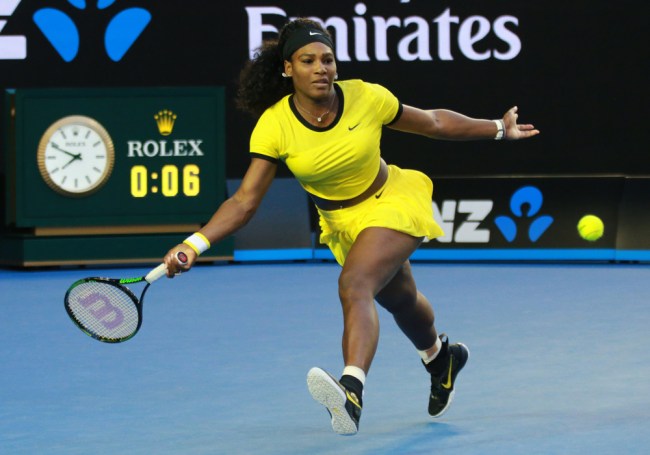Serena Williams Won the Australian Open While Pregnant, So People Are Policing Her Body Again


Superstar athlete Serena Williams won her 23rd Grand Slam at the Australian Open back in January, bringing her only one title away from tying Margaret Court’s record of 24 singles Grand Slams. After Williams announced her pregnancy on Snapchat last week, fans did the math and realized that she was pregnant during the tournament.
Serena Williams was pregnant when she won her 23rd grand slam tournament at the Australian Open. And did not drop ONE SET. Let that sink in.
— 23RENA (@noelleharmony) April 19, 2017
Of course, as happens whenever a woman achieves something amazing, someone had to go and question her accomplishment. New Scientist published this rather bizarre headline – “Is Serena Williams’s pregnancy making her a better athlete?” – and promoted it with the below video and tweet.
Could pregnancy have helped Serena Williams win the Australian Open? https://t.co/ATEyYOZnAN pic.twitter.com/sjGYntNwPp
— New Scientist (@newscientist) April 21, 2017
I’m sorry, but what kind of headline is that? I can maybe understand where they were going with the article itself. It discusses the science of what happens to the body during pregnancy and ties into an interesting historical hysteria from the 1970s and 1980s, in which rumors spread that women athletes were “abortion doping” to improve their performance.
The content of the article itself is also honest about the fact that there is really no evidence to suggest that pregnancy offers any performance-enhancing benefits. Caveats like “But this is just a theory,” and “researchers are divided on whether this would improve athletic performance” abound.
So then why? Why do we need this weird headline that undercuts Williams’ achievement while somehow suggesting that pregnant people enjoy a sort of advantage or magic? Why do we need to imply that Williams’ family planning decisions are actually a sneaky form of cheating? There’s nothing wrong with examining pregnancy’s effects on the body, or historical attitudes toward pregnant women athletes, but this angle is just…It purports to answer a question that no one is asking.
It also plays into the media’s long history of politicizing, policing, and questioning Williams’ body. The New York Times previously published this sexist article and accompanying tweet:
Serena Williams has a muscular frame. Her rivals choose not to emulate her physique http://t.co/IecMzg4AwV pic.twitter.com/gEGHd3NI3z
— The New York Times (@nytimes) July 10, 2015
Williams has also been asked to smile more, been called racial slurs, and had to deal with horse-racing enthusiasts whining that she was 2015 Sportsman of the Year instead of the horse American Pharaoh. This hostile, off-topic coverage doesn’t happen to Roger Federer or Rafael Nadal. Can we please just let her be?
Of course, while it’s unfair to undercut Williams’ accomplishment, I also don’t want to make too much of her win during her pregnancy. Every pregnancy is different, but plenty of pregnant people feel relatively normal during the nine months, working and exercising regularly. Other pregnant people suffer tremendous nausea or debilitating complications. It varies body-to-body and baby-to-baby. We can acknowledge the incredible sacrifice and discomfort that’s often involved in carrying a baby without giving into either superhero or delicate-flower tropes.
Pregnant or no, Serena Williams is one of tennis’s all-time greats and advocates for girls across the world. Let’s focus on that going forward.
(Via The New Scientist; image via Shutterstock)
Want more stories like this? Become a subscriber and support the site!
—The Mary Sue has a strict comment policy that forbids, but is not limited to, personal insults toward anyone, hate speech, and trolling.—
Have a tip we should know? [email protected]